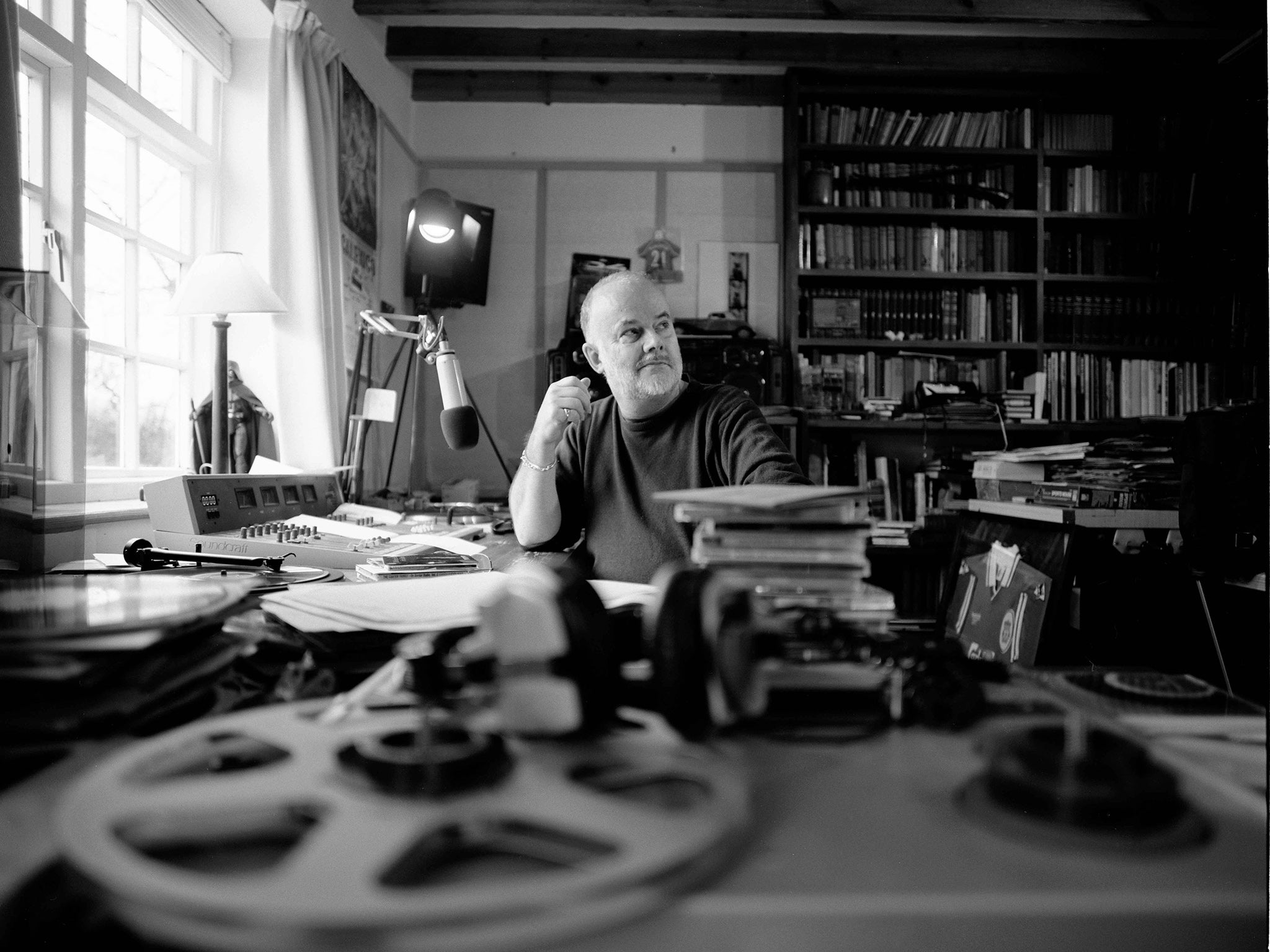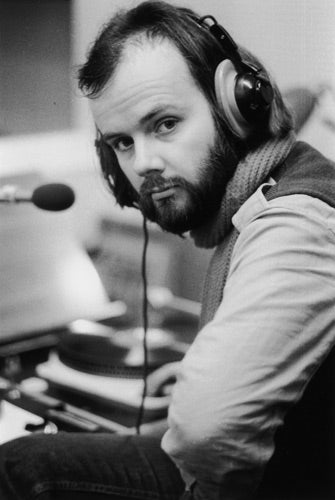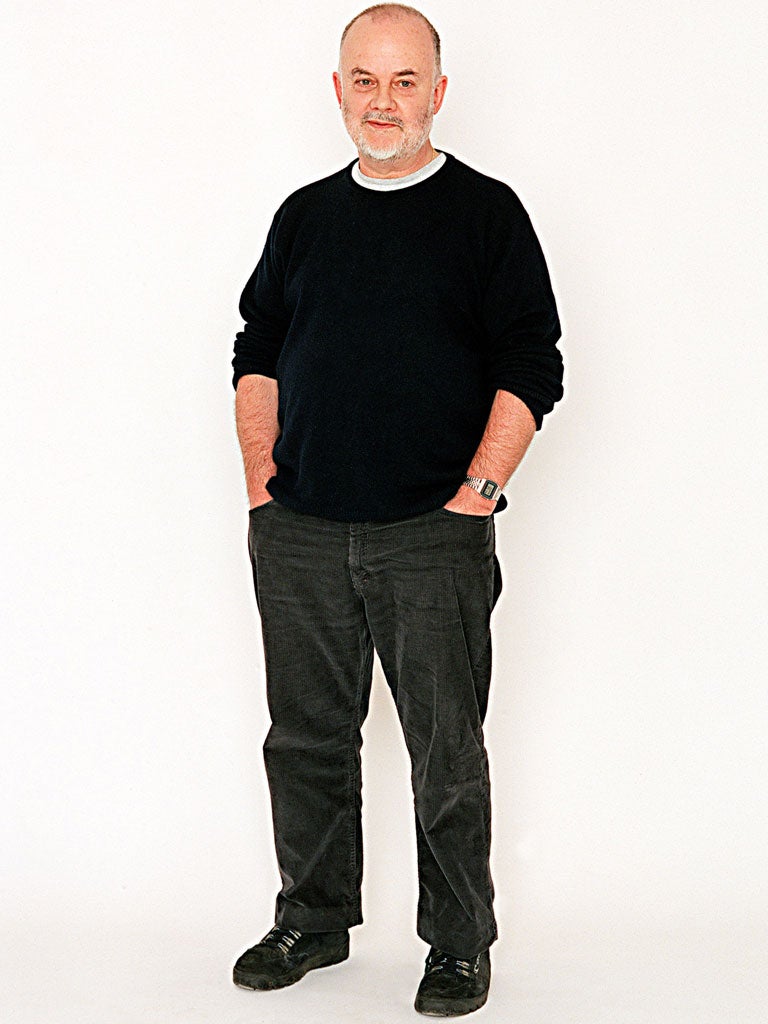BBC radio DJ John Peel: Ten years after his death, no one compares to his talent
Peel’s combination of constant curiosity, authoritative perspective and endearing quirks is sorely missed

Your support helps us to tell the story
From reproductive rights to climate change to Big Tech, The Independent is on the ground when the story is developing. Whether it's investigating the financials of Elon Musk's pro-Trump PAC or producing our latest documentary, 'The A Word', which shines a light on the American women fighting for reproductive rights, we know how important it is to parse out the facts from the messaging.
At such a critical moment in US history, we need reporters on the ground. Your donation allows us to keep sending journalists to speak to both sides of the story.
The Independent is trusted by Americans across the entire political spectrum. And unlike many other quality news outlets, we choose not to lock Americans out of our reporting and analysis with paywalls. We believe quality journalism should be available to everyone, paid for by those who can afford it.
Your support makes all the difference.John Peel, who died a decade ago next month, shaped the tastes of several generations of music aficionados.
He introduced the hippies who listened to The Perfumed Garden, his programme broadcast between midnight and two am throughout the Summer of Love by the pirate station Radio London, to the psychedelic sounds of Love, Jefferson Airplane, the Grateful Dead and the other acts he had seen emerging while DJ-ing in California.
Those listeners followed him to Radio 1 in the autumn of 1967, where he co-presented Top Gear, and over the next couple of years championed Pink Floyd, David Bowie and Led Zeppelin, three of the most influential British acts of all time. By the early 1970s, Peel, along with his producers Bernie Andrews and John Walters, were recording and broadcasting sessions by Roxy Music, Queen and The Wailers, simultaneously managing to placate the Musicians’ Union by giving its members extra work and creating a valuable archive for future generations to delve into – give or take the odd wiped tape.
But the real sea-change came in the spring of 1976 when the presenter acquired an import copy of The Ramones’ eponymous debut album and helped to accelerate the punk revolution. Within a few months, the programme booked The Damned for their first session, although, to his eternal chagrin, the former schoolteacher in Walters did not trust the Sex Pistols enough to welcome them into the BBC’s Maida Vale studios.

Still, Peel gave the Pistols’ single “Anarchy In The UK” and their Never Mind the Bollocks album plenty of airplay as traditional listeners deserted him and a younger generation discovered his 10pm to midnight show. The Clash abandoned a session over technical issues but, otherwise, the Peel sessions and playlists from 1977 onwards read like a who’s who of UK punk and post-punk, with The Stranglers, The Jam and Buzzcocks as well as Siouxsie and the Banshees, The Cure and Joy Division featuring heavily.
Indeed, as once-alternative acts like Gary Numan, Adam and the Ants and Human League stormed the charts, the broadcaster did worry. “The late 1970s was the only time the programme was fashionable,” he said. “I really didn’t like the experience. I felt rather as I imagine bands must feel when they become fashionable, that the audience expect certain things of them which they might not necessarily want to go on doing.”
Peel had been there before, as Marc Bolan, Elton John and Rod Stewart had gone stratospheric and forgotten him and the role he had played in their 1970s breakthroughs, and kept a distance from his favourites The Fall and the Undertones, along with New Order and The Smiths, the two bands who did so much to define the alternative, DIY, indie ethos of the 1980s.
Peel already played dub reggae, world music and hip-hop, and would go on to champion techno, drum’n’bass and The White Stripes, but always insisted: “I don’t pursue particular movements. The punk thing dominated as it did only because there wasn’t anything else interesting at the time, or at least that interested me,” he reflected in the Peeling Back The Years series broadcast on Radio 1 in 1987. “But after the first careless rapture of that had diminished, I went back to the way I’d been before, looking around at various areas of music and trying to find what I regarded as the best in those different areas – rock, folk, reggae.”
It was this enthusiasm, combined with his wide-ranging knowledge of most genres, and a deadpan delivery that matched his dry sense of humour, that made Peel such a compelling listen throughout the decades. That’s why teenagers tuned in under the covers, taped programmes, sent in demos. Pulp, The Wedding Present and Mogwai didn’t set out to conquer the charts or redefine the parameters of rock music but simply wanted to record a Peel session.
Enjoy unlimited access to 100 million ad-free songs and podcasts with Amazon Music
Sign up now for a 4 month free trial (3 months for non-Prime members)
Enjoy unlimited access to 100 million ad-free songs and podcasts with Amazon Music
Sign up now for a 4 month free trial (3 months for non-Prime members)

Peel’s death on 25 October 2004, while on holiday in Peru, robbed Britain and the world of its most influential music broadcaster – though it may also have saved him from the kind of retrospective scrutiny that has led former colleagues into the law courts. Radio 1 cleared its schedule for a day of tributes but never really tried to replace him as the station attempted to move towards a younger demographic. The BBC had launched 6 Music in 2002 and claimed that the digital station embraced the Peel ethos, while 1Xtra, also launched that year, specialised in urban music.
Yet, despite the breadth of music played on these stations, along with Radio 2 and specialist shows on BBC local radio, not to mention the array of offerings from the commercial sector in Britain and internet-based stations around the world, Peel’s combination of constant curiosity, authoritative perspective and endearing quirks is sorely missed. Where else are you going to hear the Scots poet Ivor Cutler, the two singles by lost 1979 Dorset power pop group Tours, or early 1980s pop sensation Sheena Easton?
Sure, 6 Music fulfils a similar function, its programmes available 24/7 as well as via the iPlayer service. It makes comprehensive use of the Peel sessions and other BBC archive material, inaugurated the John Peel Lecture in 2011 and features many presenters who grew up listening to him, literally in the case of his son, Tom Ravenscroft, or of Lauren Laverne and Marc Riley, who have both made the transition from Peel-approved bands to presenting their own shows. Riley’s off-the-wall sense of humour, while coarser than Peel’s dry wit, makes him a natural heir to the Peel throne, though the more cultured and catholic approach favoured by Gideon Coe works well in the 9pm to midnight slot.

In an average week, 6 Music reaches nearly two million listeners, yet none of its programmes pack the same impact as Peel’s used to. Huey Morgan and Craig Charles currently straddle the 6 Music and Radio 2 schedules, and do a fine, funky job, yet are also symptomatic of the way the BBC has embraced celebrity – or cult status – when looking for presenting talent. Annie Nightingale, now Radio 1’s longest-serving broadcaster, where she is still playing “the biggest bass bangers”, has made tentative forays into Radio 2 with her Eternal Jukebox that could be developed into a weekly rather than a bank-holiday occasion.
Listeners of various vintages may also point out that Andy Kershaw, who last broadcast on Radio 1 in 2000, before moving to Radio 3, could have picked up the Peel baton but for the unravelling of his private life in 2007. Mark Lamarr’s God’s Juke-Box, a weekly three-hour overnight show which ran on Radio 2 from April 2006 to December 2010, is arguably the closest any of the national – rather than digital – stations have come to matching the Peel magic.
Peel often felt like the antidote to daytime Radio 1, but Walters, his producer, always smoothed things over with management. And then booked another bunch of young upstarts for a session…
Join our commenting forum
Join thought-provoking conversations, follow other Independent readers and see their replies
Comments